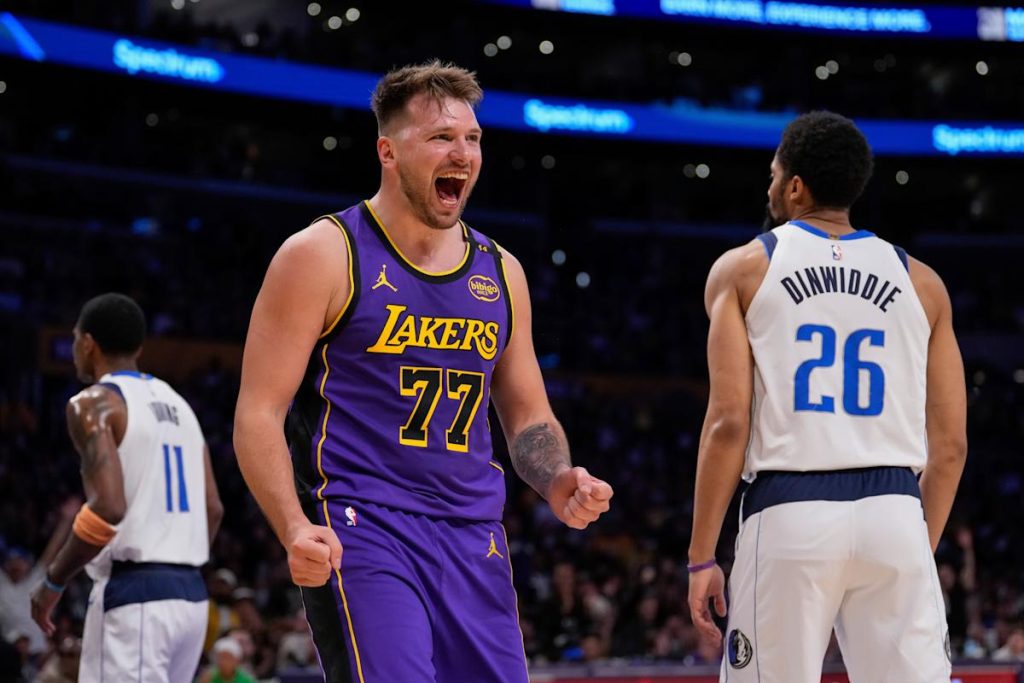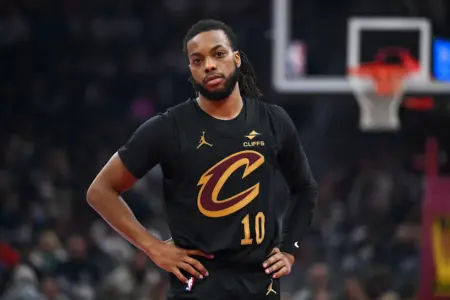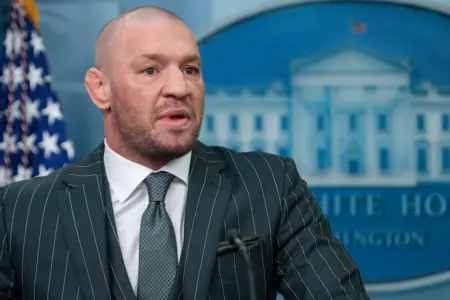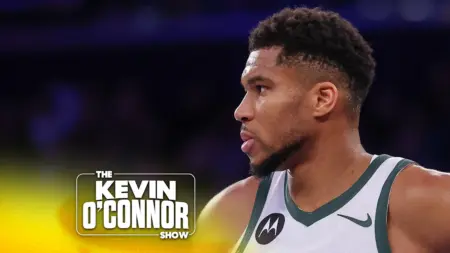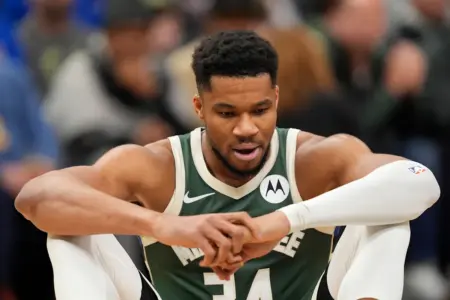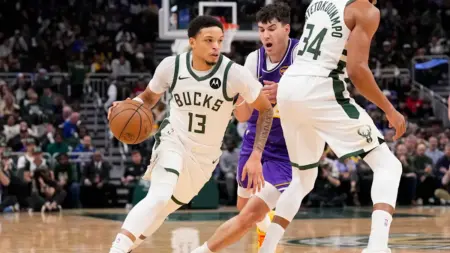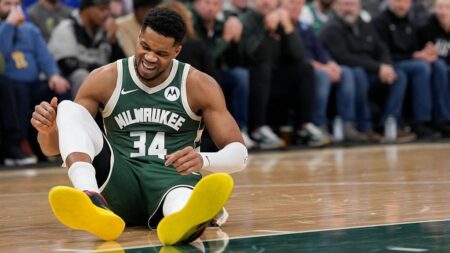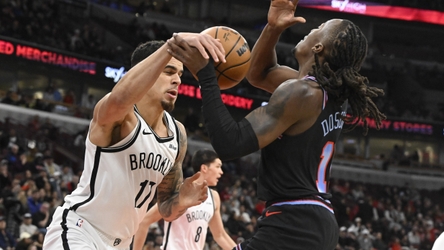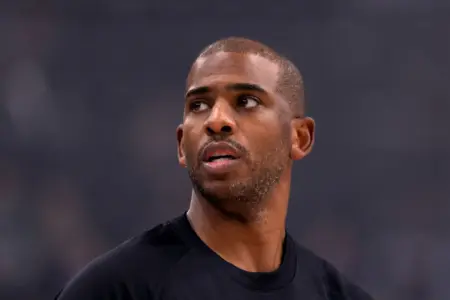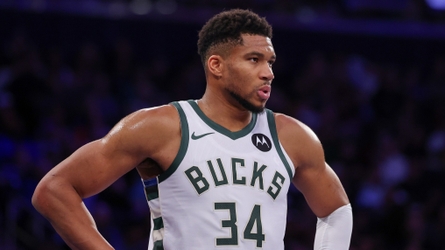A Season of Setbacks Begins on Christmas Day
The Dallas Mavericks’ season has been marred by a string of unfortunate events, each one seemingly more devastating than the last. It all began on Christmas Day, December 25, when the team’s star player, Luka Dončić, left the 105-99 loss to the Minnesota Timberwolves during the first half due to a left calf injury. This initial setback sent shockwaves through the Mavericks’ fanbase and left the team without its best player for over a month. Dončić’s absence was a significant blow, as he had been the driving force behind the Mavericks’ recent success, averaging impressive stats and leading the team with his exceptional playmaking and scoring abilities. The injury not only dampened the festive mood but set the tone for a season filled with more challenges to come.
The Earth-Shattering Trade
On February 2, the Mavericks made a move that stunned the entire NBA community: trading Luka Dončić, along with Maxi Kleber and Markieff Morris, to the Los Angeles Lakers in exchange for Anthony Davis, Max Christie, and a first-round draft pick. The trade was part of a three-team deal that included the Utah Jazz. Mavs General Manager Nico Harrison justified the decision by emphasizing the importance of defense in winning championships. Harrison believed that acquiring an All-Defensive center and an All-NBA player with a strong defensive mindset would give the Mavericks a better chance at sustained success. However, the trade was met with widespread skepticism and disbelief, given Dončić’s undeniable talent and potential.
A New Era Begins with Anthony Davis
Just two days after the trade, on February 4, Luka Dončić was introduced as a Los Angeles Laker. Lakers executive Rob Pelinka praised the Mavericks for the trade, calling it "a gift" for the Lakers. Dončić, still visibly stunned by the sudden change, vowed to "take the high road" in response to the critical comments made about him by the Mavericks’ brass. The introduction marked the beginning of a new era for both teams, but the Mavericks’ hopes were short-lived. On February 8, Anthony Davis made his Dallas debut, putting up an impressive 26 points, 16 rebounds, seven assists, and three blocks in just 31 minutes. However, his performance was overshadowed by an injury in the third quarter. Davis exited the game with a lower-body injury, which was initially thought to be minor. The next day, it was revealed that he had suffered an adductor strain and would be out for several weeks. This news sent another ripple of disappointment through the team and its fans.
Fan Backlash and Further Injuries
The Mavericks’ decision to trade Dončić and the subsequent injury to Anthony Davis did not sit well with the fans. On February 8, the night of the team’s first home game post-trade, Mavericks supporters gathered outside the American Airlines Center to protest. Some signs demanded the firing of GM Nico Harrison, while others called for the team to be sold. The protest was a clear indication of the fans’ frustration and disillusionment with the direction the team was taking. The following night, during a home game against the Sacramento Kings, the Mavericks faced another setback. Daniel Gafford, the team’s big man, had to be helped off the court after his right knee buckled while setting a screen. This injury added to the list of absent players, as the Mavericks were already without Davis, Dereck Lively II, and Dwight Powell. The cumulative effect of these injuries and the trade was a palpable sense of despair among the faithful fans.
Reflections and Reactions
The trade continued to be a major topic of discussion even at the NBA’s All-Star Weekend on February 15. San Antonio Spurs’ Victor Wembanyama, a rookie sensation, described it as "the craziest trade I’ve ever seen." Commissioner Adam Silver also addressed the trade during his press conference, noting that the Dumont and Adelson families, who own the Mavericks, had made the trade in the best interest of the organization. Silver reassured fans that there were no ulterior motives and that the ownership was committed to Dallas’ long-term future. Despite the reassurances, the trade remained a contentious issue. On February 21, Mavs legend Dirk Nowitzki shared his first reaction to the trade at a Ticketstock event. Nowitzki expressed his feelings, saying, "I’ll never be a Lakers fan, but I must always be a Luka fan." His comments resonated with many longtime Mavericks supporters who felt a sense of betrayal but also recognized Dončić’s immense talent and potential.
The Final Blow: Kyrie Irving’s Season-Ending Injury
The Mavericks’ struggles reached a new low on March 4 when star guard Kyrie Irving suffered a torn ACL in his left knee during a game against the Sacramento Kings. Irving, who had been a key acquisition and was expected to bolster the team’s playmaking and scoring, went down early in the first quarter. The injury occurred as he was attempting a layup, and his knee bent awkwardly. Irving’s absence will have a profound impact on the team’s performance for the remainder of the season. The news of his season-ending injury added another layer of disappointment for the Mavericks, who were already reeling from the loss of Dončić and the ongoing injuries to their big men. The fanbase, already disillusioned by the trades and injuries, is now bracing for a long and difficult stretch as the team tries to navigate the remainder of the season without its star players.
Looking Forward: The Mavericks’ Uncertain Future
As the Mavericks navigate the remainder of the season without their star players, the team faces numerous challenges, both on and off the court. On February 3, the Mavericks announced a ticket price increase for the upcoming season, citing "ongoing investments in the team." This move was met with significant backlash from season ticket-holders, who were already unhappy with the direction of the team. The average overall price increase of 8.61% only added to the fans’ frustration. Meanwhile, the team must find a way to regroup and rebuild. Questions about the future of the franchise, the wisdom of the trades, and the commitment of the ownership to the city of Dallas loom large. The Mavericks will need to demonstrate strong leadership, resilience, and a clear plan to regain the trust and support of their loyal fanbase.

